Why does Dutch probable PM Geert Wilders hate Muslims and love Zionists
By Ivan Kesic
Geert Wilders, leader of the Party for Freedom (PVV) and winner of the recently held general elections in the Netherlands, is one of Europe's most notorious Islamophobes with close ties to Zionist groups
The general election in the Netherlands on November 22 resulted in the victory of Wilders' anti-Islamic, pro-Israel and far-right political party, sending shockwaves across Europe and the world.
His party won 37 seats in the country’s 150-seat legislature, the largest single bloc, well ahead of outgoing Prime Minister Mark Rutte’s conservative People’s Party (24 seats) and the left-wing Labour-Green coalition (25 seats).
Wilders, who has been a political fringe in the liberal Netherlands for nearly two decades, now has the prospect of forming a coalition government and is already announcing that he will be prime minister.
In a post on X, formerly Twitter, on Saturday, the far-right Dutch politician said he would “continue to moderate” his positions if necessary to become the country’s next prime minister.
“Today, tomorrow or the day after, the PVV will be part of government and I will be prime minister of this beautiful country,” Wilders wrote in a lengthy post.
In his own country, he is known as a Eurosceptic and a strong opponent of immigration, especially Muslims, which means the mass expulsion of immigrants and the closing of mosques in the country.
Around the world, Wilders is best known for the Islamophobic propaganda film "Fitna" in which terrorism, misogyny, violence and religious exclusivity are imputed to Islam, using various manipulations, deceptions and misinformation.
Ideological development
Taking into account the evolution of his political career, his political role models and international connections, Wilders' ideological development is divided into three phases: conservative-liberal (1989–2002), neoconservative (2002–2006) and populist (2006–present).
During the first period, Wilders distinguished himself as a member of the People's Party for Freedom and Democracy (VVD) and was most influenced by Frits Bolkestein, the party's leader at the time.
Bolkestein advocated a new confrontational political style, a mixture of neoliberal views on the economy and more conservative views on socio-cultural issues, along with criticism of multiculturalism and calling for the restoration of old values as the moral foundations of society.
In the late 1990s, Wilders became increasingly close to Israeli regime politicians and began to express an interest in West Asian politics, arms control and Muslim extremism, arguing that the latter would move to Europe through immigration.
In the first half of the 2000s, he teamed up with Bart Jan Spruyt from the conservative Edmund Burke Foundation. He traveled with him regularly to the occupied Palestinian territories and the United States.
There, the duo got acquainted with the ideas and methods of neoconservative organizations, primarily the American Enterprise Institute (AEI) and the Heritage Foundation.
Convergence to American neoconservatism resulted in a departure from the views of his mentor Bolkestein and traditional Dutch liberalism, which is maintained in four main turns.
First of all, Wilders became a staunch supporter of Bush's "war on terror" and supported the US military adventures in Afghanistan and Iraq, as well as the opening of the notorious detention camp at Guantanamo.
Together with Ayaan Hirsi Ali, a controversial writer and a known Islamophobe, he called for the involvement of the European Union (EU) in the "democratization of the Middle East," and under the pretext of the anti-terrorist fight advocated a military attack on Iran and Syria.
Secondly, Wilders began advocating all kinds of radical measures against potential threats to Dutch national security, often modeled after American and Israeli models.
Such measures include the imposition of a state of emergency, preventive and administrative detentions, and the denaturalization and deportation of suspects, not only terrorists but also radical religious clerics (imams) and Moroccan criminals.
Thirdly, he began speaking out against the system, claiming that the progressive elite was "abusing democracy" and "carrying out indoctrination through public television."
Finally, the most significant change in Wilders' views has been the emergence of a fierce animosity towards Islam and Muslims, inspired by neoconservatives such as Daniel Pipes and Norman Podhoretz.
On the domestic Dutch sociopolitical scene, Wilders' anti-Muslim views were most influenced by Pim Fortuyn, Theo van Gogh and Ayaan Hirsi Ali, all of them radical Islamophobes.
The first two were assassinated and the latter moved to the United States in the 2000s, which opened up space for Wilders to position himself as the leader of Islamophobia in the Netherlands.
One of the main characteristics of Fortuyn's New Right movement is the construct of a morally evil enemy (Dutch: feindmarkierung) which must be opposed by all means, and Muslim immigrants are placed in the role of this social antipode.
Leader of Islamophobia
Although at the beginning of the 21st century, many commentators saw Wilders as the new leader of the VVD, in 2004, he left the party due to the resolute rejection of Turkey's admission to the EU and thus became an independent member of parliament.
Two years later, he founded the PVV party, which marked the beginning of a new, populist, ultra-right, ethnic-nationalist and radical Islamophobic phase of his political career.
Wilders began advocating irredentism towards Flanders, promoting national pride in schools and skepticism towards the EU and its expansion.
However, the most drastic change in his public performances and media interviews was the manifestation of more radical forms of Islamophobia.
He began to identify Islam as a "totalitarian ideology similar to communism and fascism" and as a "threat to the West," as well as to seek the complete assimilation of Muslims and the cultural elimination of Islam in the Netherlands.
Invoking Italian Islamophobic activist Oriana Fallaci, he claimed that "there is no moderate Islam" and that the Quran is a "fascist book" or "Islamic Mein Kampf," and proposed its ban in the Netherlands.
Wilders insulted Islam and Muslims with various vulgar terms, including a "sick ideology," and called Islamic culture "retarded and inferior" in one of his interviews with Fox News.
He repeatedly justified his position by arguing that he "protects the Western heritage based on Christianity, Judaism and humanism."
At the same time, he began to refer to various apocalyptic conspiracy theories, starting with calling Muslim immigration a "Trojan horse" for the Islamization and colonization of Europe, which is a paraphrased concept of "Eurabia" from the Israeli hate-monger Bat Ye'or.
His other conspiracy theories include an alleged civilizational war between Islam and the Christian West and the taqiyya as an alleged all-Muslim conspiracy tool to deceive Westerners.
These positions were reflected in practice through his fierce opposition to immigration, which was often called the new McCarthyism, and through demands for the complete marginalization of Muslims.
Wilders called for the expulsion of millions of "non-assimilated" people from Europe, described immigration as a "tsunami of Islamization" and demanded the introduction of a tax for "ragheads."
In addition to Muslims, immigrants from Eastern Europe and the Netherlands Antilles were also the target of his xenophobic and vulgar outbursts.
The evolution of Wilders' political career was favored by multiple factors: public mood, mass media and international political trends, especially American-Israeli Islamophobic propaganda as a cover for aggressive interventionism in West Asia.
Wilders himself is not the first European politician to make Islam and multiculturalism the focus of a major problem on the continent, considering that since the 1990s a number of individuals and groups with the same views have appeared.
Among parties similar to his PVV, Flemish Interest in Belgium, the National Front in France, the Swiss People's Party, the Freedom Party of Austria, the Danish People's Party, True Finns, Sweden Democrats, Jobbik in Hungary, Northern League and National Alliance in Italy stand out.
Most of them have in common that they spread conspiracy theories about the Islamic conquest of Europe, and one of the relatively recent phenomena is that they use the rights of women and homosexuals as a cover for radical xenophobic attitudes.
Martin Amis and Christopher Hitchens in England, Michel Houellebecq in France, and Oriana Fallaci in Italy are individuals who skillfully exploited Islamophobia for self-promotion in the manner of Wilders.
Global affiliations
Wilders' political rise is not a coincidence, nor are his views original, as many analysts point out that he is just a link in the chain of a well-organized and financed anti-Islamic campaign.
He nevertheless positioned himself as the central figure of such a European movement, leading a mass of politicians and Islamophobic agents who fiercely attack Muslims and present themselves as ordinary people tired of the constraints of political correctness.
In Europe, his main collaborators are the British conservative politicians Malcolm Pearson and Caroline Cox, co-founder of the Zionist organization "One Jerusalem", which advocates for the uncompromising retention of Israeli control over all of Jerusalem.
In addition to the British duo, Wilders collaborated with several other ultra-right or populist parties and organizations to promote his Islamophobic film "Fitna" in Europe.
However, its closest political allies are in the United States and the occupied Palestinian territories, which is a characteristic by which the PVV party generally differs from the above-cited European groups.
His American circle of collaborators includes Republican Senator Jon Kyl, Frank Gaffney from the Center for Security Policy (CSP), David Horowitz from the David Horowitz Freedom Center (DHFC), Daniel Pipes from the Middle East Forum (MEF), Robert Spencer from Jihad Watch and Pamela Geller.
Common to all of the above is that, like Wilders, they propagate fierce Islamophobia, the most radical forms of Zionism and conspiracy theories about the Islamization of the West.
Zionist connections
A special case is Wilders' strong relationship with the Israeli regime, as he spent his youth in the occupied territories and has been frequently visiting Tel Aviv over the years.
Even during his career in the VVD party, he expressed sympathy for Israeli politics and warned about the alleged threat from Iran's ballistic missile program.
Initially, he pushed for Israeli-Palestinian peace and criticized then-Israeli leader Ariel Sharon. All this helped Wilders to distance himself from fascism, which proved fatal to earlier Dutch populist parties.
In the transitional neoconservative phase, he became extremely radical and began to openly encourage military attacks on Iran and Syria, the countries the regime fears the most.
An even more drastic radicalization occurred after the founding of the PVV party when it became close to neo-Zionists and Israeli settlers, especially Avigdor Lieberman from Yisrael Beiteinu and Aryeh Eldad from Hatikva and the National Union (HH).
He suddenly started calling Israel the "bulwark of civilization," advocating the Israeli annexation of the occupied West Bank and the deportation of all Palestinians to Jordan.
His film "Fitna" was screened in Canada through local Zionist organizations, including the Jewish Defense League (JDL), as well as at the Menachem Begin Memorial Center in Jerusalem under the auspices of the Ariel Center for Policy Research (ACPR).
One of the main distributors of the propaganda film, which carries a strong pro-Israel message, was the pro-Israeli PR company Ruder Finn, which has been actively engaged in anti-Iranian propaganda.
They twisted the statements of the former Iranian president, drew parallels with him and Hitler, and propagated the alleged danger of Iran causing a "nuclear holocaust."
At the Israeli premiere of the film, Wilders announced an ambitious plan to gather "all European patriots against jihad" under one umbrella organization, which ultimately did not happen.
On the basis of the mentioned political connections, Dutch analysts highlight the possibility that extremist Israeli settlers are behind the propaganda film's financing, directing, and production.
Amid the current Israeli aggression on Gaza, he has come out openly in support of the regime and its genocidal campaign and repeated the old calls for ethnic cleansing of all Palestinians in Jordan.
Wilders has also advocated moving the Dutch Embassy from Tel Aviv to the occupied Al-Quds and closing the Dutch diplomatic mission in the occupied Palestinian city of Ramallah.
As the latest election results were announced, Wilders was seen on video celebrating with the Dutch and Israeli flags in the background.
‘Textbook definition of terrorism’: Tehran denounces Pelosi’s call on US to exact ‘pain’ on Iranians
VIDEO | 39th AU summit opens in Addis Ababa with focus on water security, peace, and development
VIDEO | Iran: The stronghold Washington lost
Anti-Iran ‘Munich circus’ shows Europe has lost geopolitical weight: Araghchi
Swiss to act as venue of next round of Iran-US talks: Report
Report: Over 50,000 soldiers fighting in Israeli military hold foreign citizenship
Danish PM warns US attack on Greenland would spell end of NATO
Power running out at key Gaza hospital, ICU patients at risk: Report


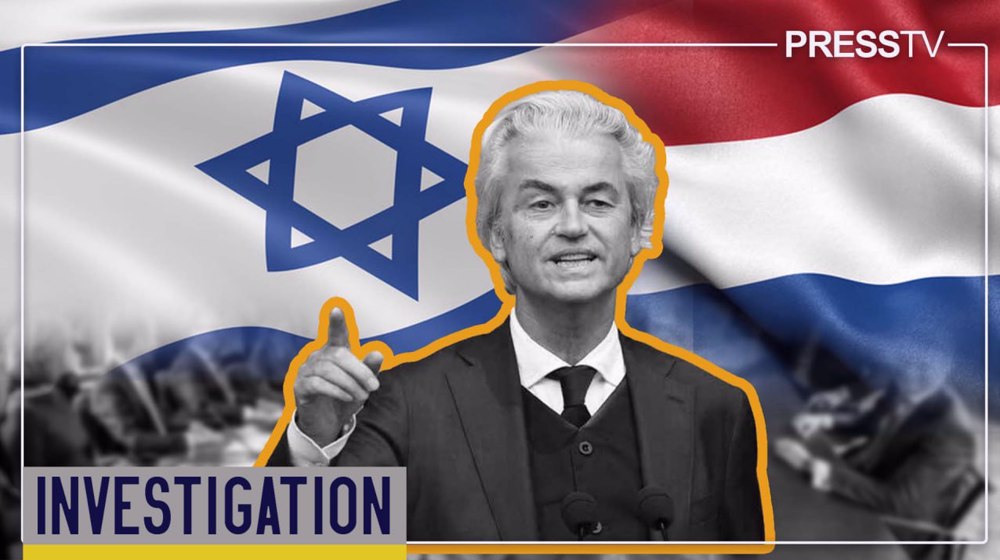
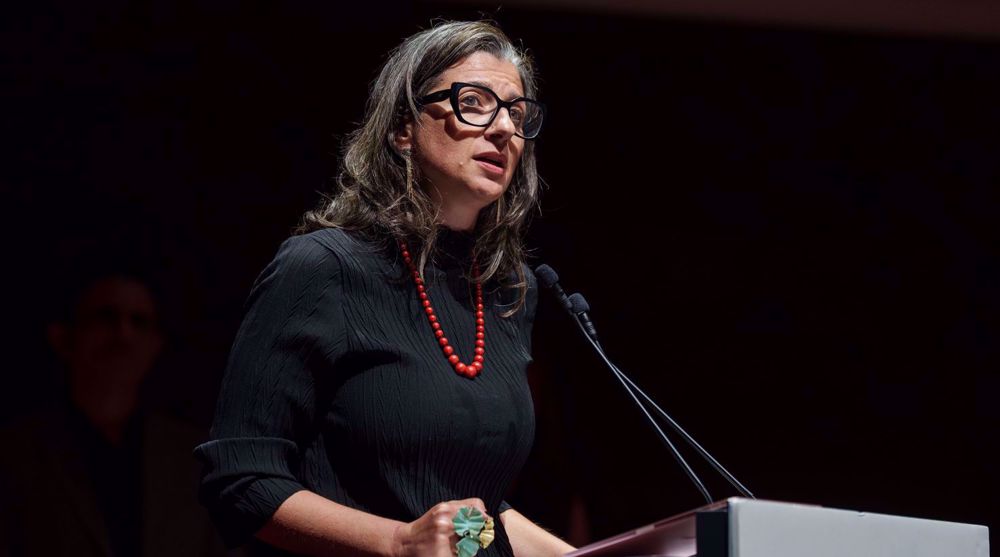
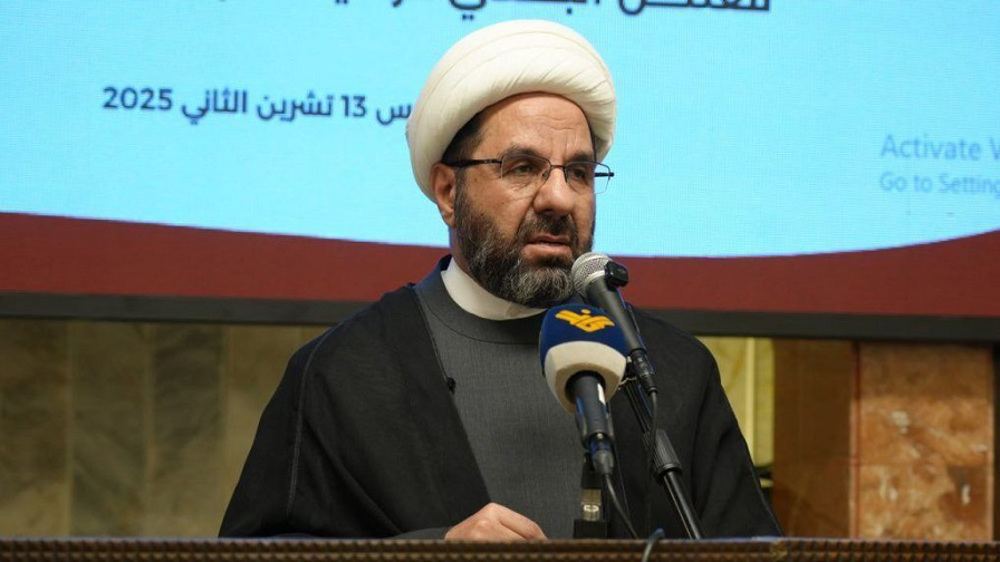
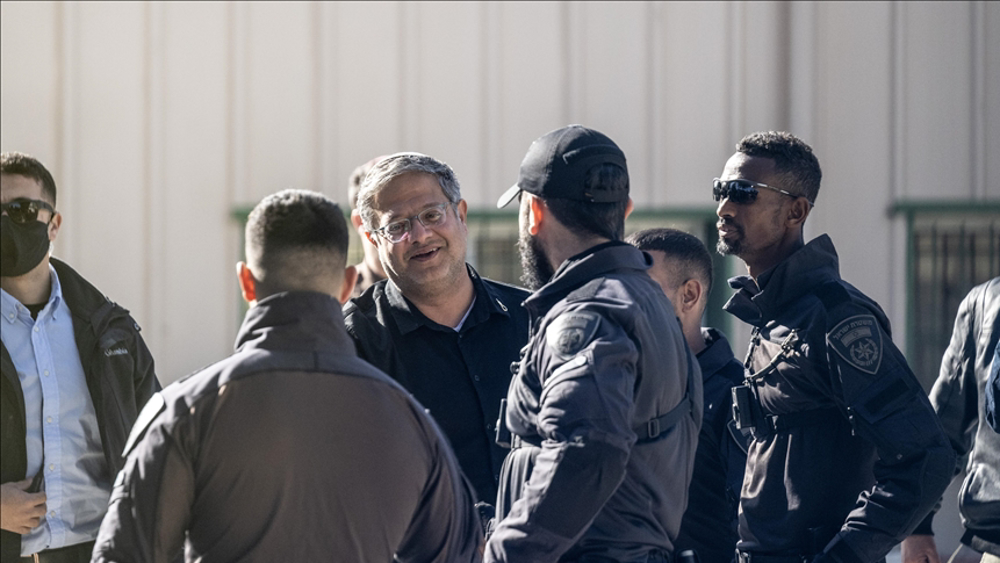



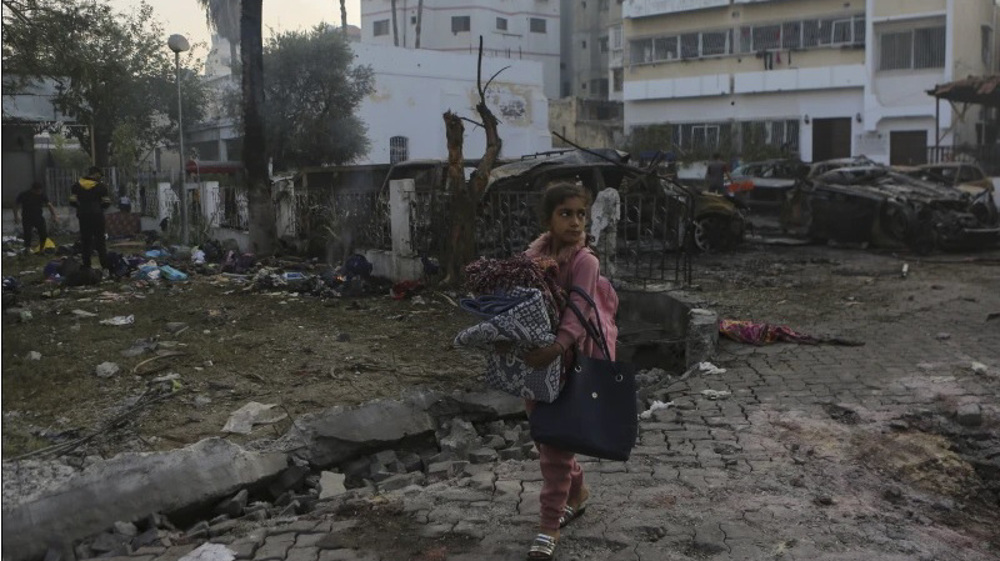
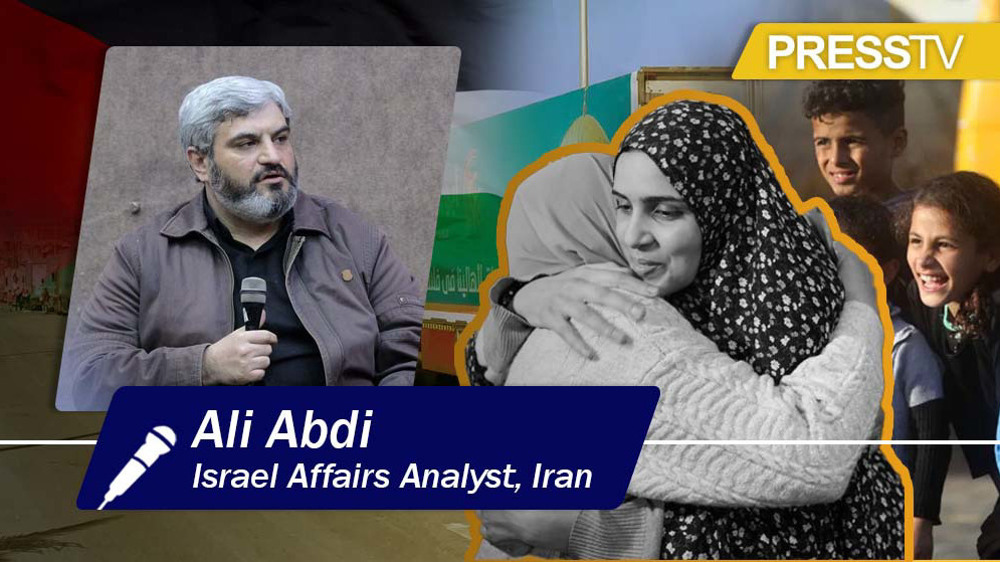
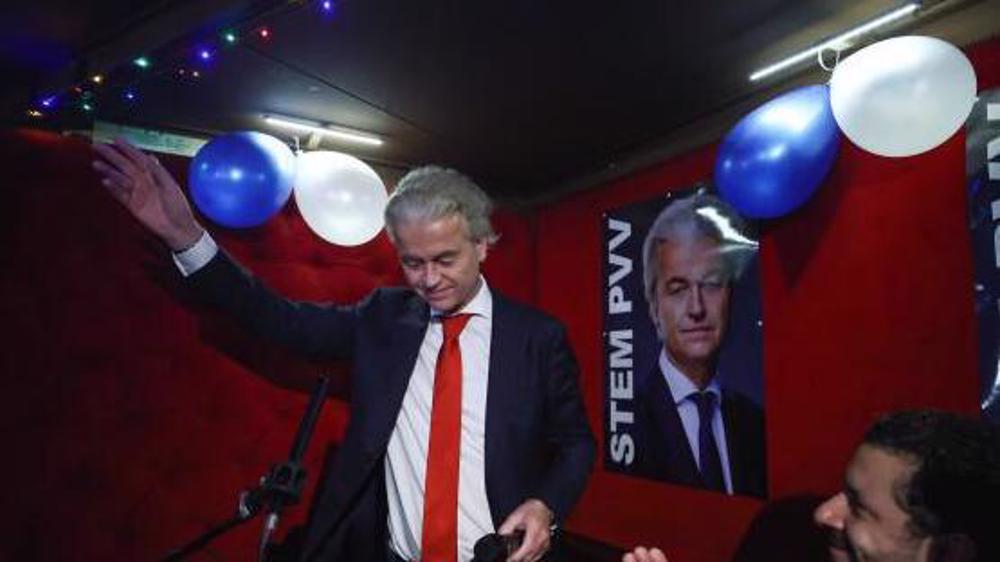
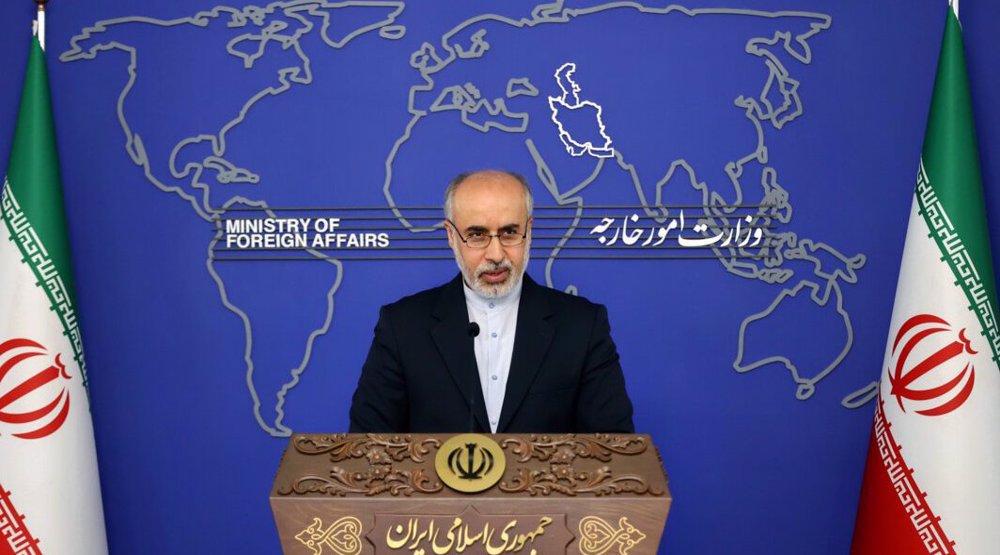
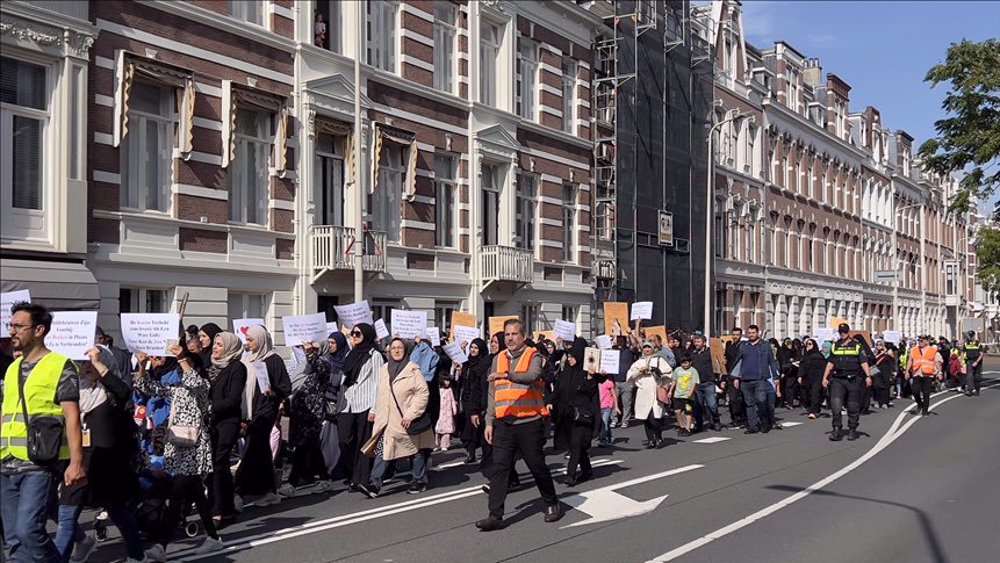

 This makes it easy to access the Press TV website
This makes it easy to access the Press TV website